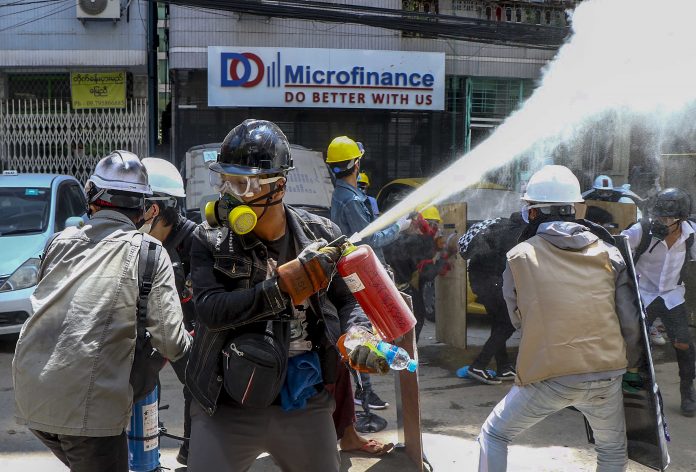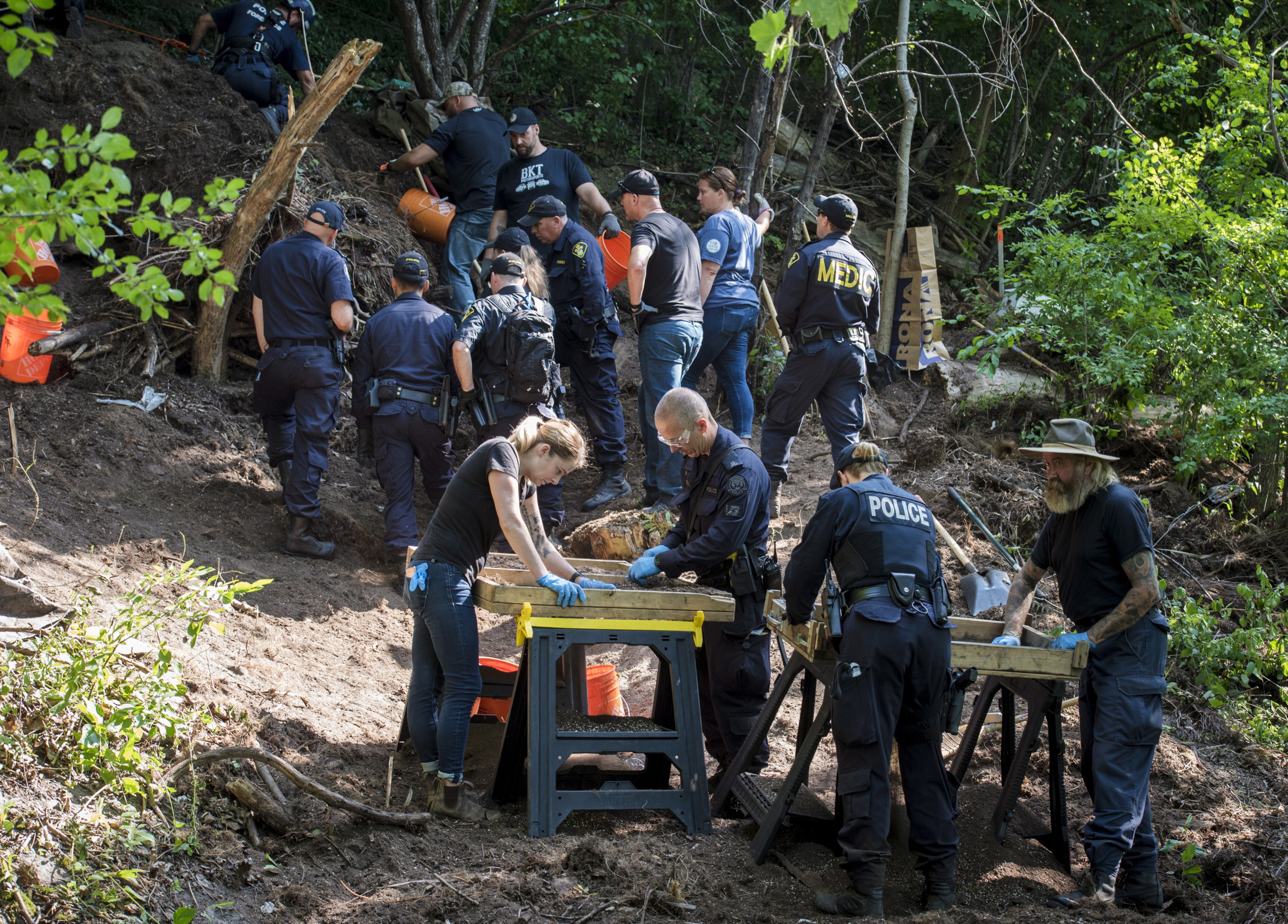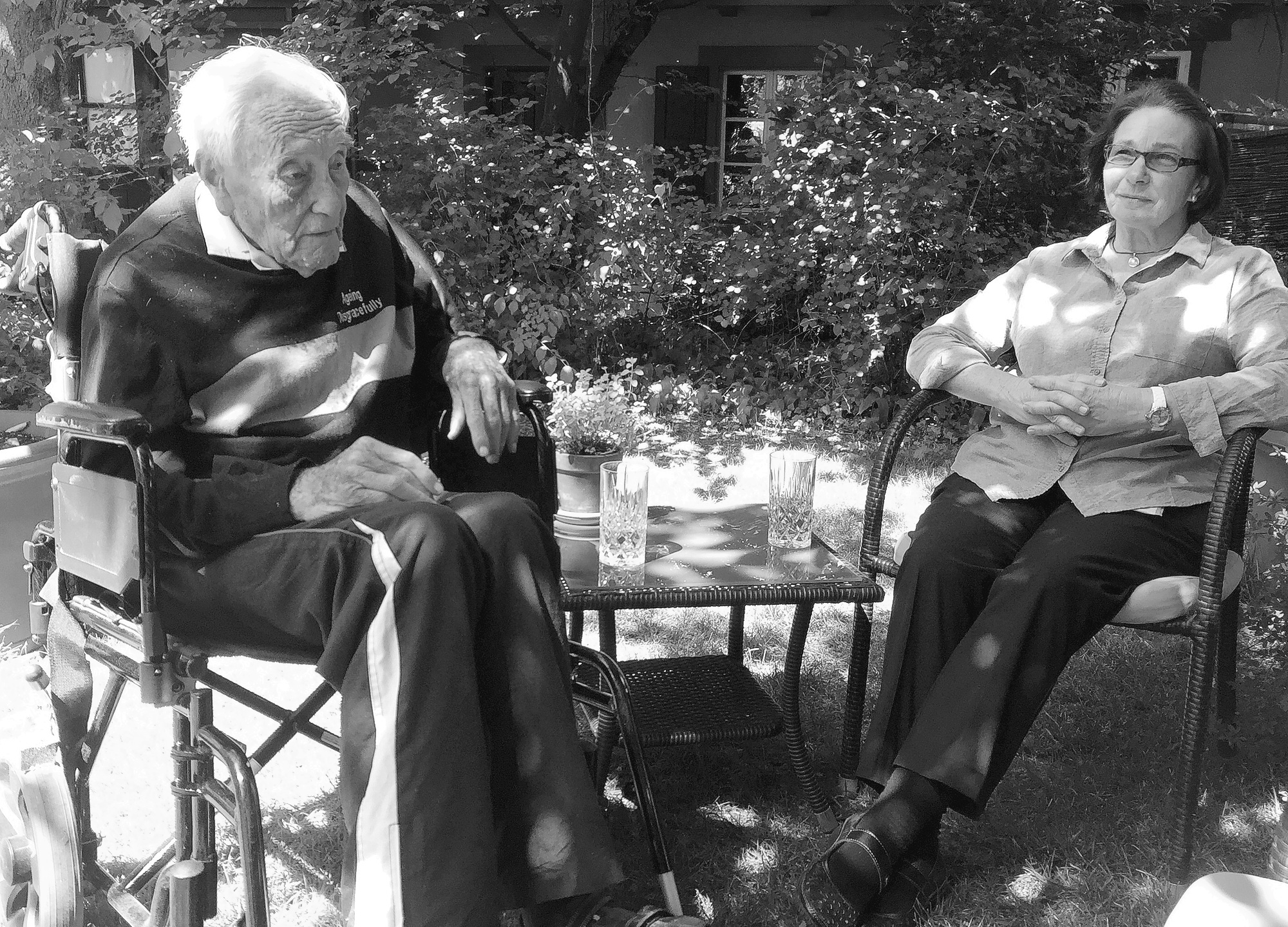
Associated Press
YANGON, Myanmar (AP) — Footage of a brutal crackdown on protests against a coup in Myanmar unleashed outrage and calls for a stronger international response Thursday, a day after 38 people were killed. Videos showed security forces shooting a person at point-blank range and chasing down and savagely beating demonstrators.
Despite the shocking violence the day before, protesters returned to the streets Thursday to denounce the military’s Feb. 1 takeover — and were met again with tear gas.
The international response to the coup has so far been fitful, but a flood of videos shared online showing security forces brutally targeting protesters and other civilians led to calls for more action. The United States called the images appalling, the U.N. human rights chief said it was time to “end the military’s stranglehold over democracy in Myanmar,” and the world body’s independent expert on human rights in the country urged the Security Council to watch the videos before meeting Friday to discuss the crisis.
The coup reversed years of slow progress toward democracy in Myanmar, which for five decades had languished under strict military rule that led to international isolation and sanctions. As the generals loosened their grip in recent years, the international community lifted most sanctions and poured in investment.
U.N. special envoy for Myanmar, Christine Schraner Burgener, described Wednesday as “the bloodiest day” since the takeover, when the military ousted the elected government of leader Aung San Suu Kyi. More than 50 civilians, mostly peaceful protesters, are confirmed to have been killed by police and soldiers since then, including the 38 she said died Wednesday.
“I saw today very disturbing video clips,” said Schraner Burgener, speaking to reporters at the U.N. in New York via video link from Switzerland. “One was police beating a volunteer medical crew. They were not armed. Another video clip showed a protester was taken away by police and they shot him from very near, maybe only one meter. He didn’t resist to his arrest, and it seems that he died on the street.”
She appeared to be referring to a video shared on social media that begins with a group of security forces following a civilian, who they seem to have just pulled out of a building. A shot rings out, and the person falls. After the person briefly raises their head, two of the troops drag the person down the street by the arms.
In other footage, about two dozen security forces, some with their firearms drawn, chase two people wearing the construction helmets donned by many protesters down a street. When they catch up to the people, they repeatedly beat them with rods and kick them. One of the officers is filming the scene on his cell phone.
In yet another video, several police officers repeatedly kick and hit a person with rods, while the person cowers on the ground, hands over their head. Officers move in and out of the frame, getting a few kicks in and then casually walking away.
While some countries have imposed or threatened to impose sanctions following the coup, others, including those neighboring Myanmar, have been more hesitant in their response. The sheer volume of violent images shared Wednesday, along with the high death toll, raised hopes that the dynamic could change.
U.N. High Commissioner for Human Rights Michelle Bachelet on Thursday urged all of those with “information and influence” to hold military leaders to account.
“This is the moment to turn the tables towards justice and end the military’s stranglehold over democracy in Myanmar,” she said.
State Department spokesman Ned Price said the U.S. was “appalled” at the “horrific violence,” and the U.N.’s independent expert on human rights in Myanmar, Tom Andrews, said the “systematic brutality of the military junta is once again on horrific display.”
“I urge members of the UN Security Council to view the photos/videos of the shocking violence being unleashed on peaceful protesters before meeting,” he said on Twitter.
The Security Council has scheduled closed-door consultations for Friday on calls to reverse the coup — including from U.N. Secretary-General Antonio Guterres — and stop the escalating crackdown.
But Justine Chambers, the associate director of the Myanmar Research Center at the Australian National University, said that while the graphic images would no doubt lead to strong condemnations — action on Myanmar would be harder.
“Unfortunately I don’t think the brutality caught on camera is going to change much,” she said. “I think domestic audiences around the world don’t have much of an appetite for stronger action, i.e. intervention, given the current state of the pandemic and associated economic issues.”
Any kind of coordinated action at the U.N. will be difficult since two permanent members of the Security Council, China and Russia, would almost certainly veto it.
Even if the council did take action, U.N. envoy Schraner Burgener cautioned it might not make much of a difference. She said she warned Myanmar’s army that the world’s nations and the Security Council “might take huge strong measures.”
“And the answer was, ‘We are used to sanctions and we survived those sanctions in the past,'” she said. When she also warned that Myanmar would become isolated, Schraner Burgener said, “the answer was, ‘We have to learn to walk with only a few friends.'”
Wednesday’s highest death toll was in Yangon, the country’s biggest city, where an estimated 18 people died. Video at a hospital in the city showed grieving relatives collecting the blood-soaked bodies of family members. Some relatives sobbed uncontrollably, while others looked in shock at the scene around them.
Protesters gathered again Thursday in Yangon. Police again used tear gas to try to disperse the crowds, while demonstrators again set up barriers across major roads.
Protests also continued in Mandalay, where three people were reported killed Wednesday. A formation of five fighter planes flew over the city on Thursday morning in what appeared to be a show of force.
Protesters in the city flashed the three-fingered salute that is a symbol of defiance as they rode their motorbikes to follow a funeral procession for Kyal Sin, also known by her Chinese name Deng Jia Xi, a university student who was shot dead as she attended a demonstration the day before.
As part of the crackdown, security forces have also arrested well over a thousand people, including journalists, according to the independent Assistance Association for Political Prisoners. On Saturday, at least eight journalists, including Thein Zaw of The Associated Press, were detained. He and several other members of the media have been charged with violating a public safety law that could see them imprisoned for up to three years.
















